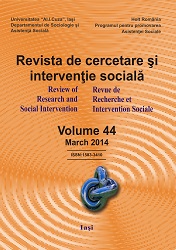Corporate Governance Context on Women’s Representation in Top Management Positions and Listed Companies Value
Corporate Governance Context on Women’s Representation in Top Management Positions and Listed Companies Value
Author(s): Georgeta Vintila, Stefan Cristian Gherghina, Mihaela OnofreiSubject(s): Social Sciences
Published by: Expert Projects Publishing
Keywords: women on boards; firm value; panel data regression models; Granger causality; vector autoregression; impulse-response functions.
Summary/Abstract: Decision making process within contemporary organisations involves different views expressed by individuals recognized through a multifarious education, wide-ranging and in-depth experience, alongside extensive perspectives. Through nominating women in top management positions is emphasized the solution towards difficult problems faced by corporations due to their specific skills. Thereby, gender diversity leads to a better decision making system. The aim of this research consists in the examination of the influence and causal relationship between the percentage of women on boards of directors and the value of companies listed on the Bucharest Stock Exchange over 2007-2011. Therewith, we took into account CEO gender diversity by employing CEO gender, as well CEO geographic diversity by considering CEO state of residence. The value of companies was proxied through industry-adjusted Tobin’s Q ratio. By estimating multivariate regression models for panel data, unbalanced, we found a percentage of women representation on boards of at least 22.50 percent in order to positively influence firm value. Besides, the nonlinear relationship previously mentioned was not statistically significant when we estimated a fixed-effects model. Furthermore, our results provide support for a positive influence of CEO gender and CEO state of residence on firm value when we estimated fixed-effects models, although the relationship was not statistically significant when we estimated models without cross-sectional effects. The empirical research of causality showed the lack of Granger causality regarding several explored lags.
Journal: Revista de Cercetare şi Intervenţie Socială
- Issue Year: 2014
- Issue No: 44
- Page Range: 229-252
- Page Count: 24
- Language: English

